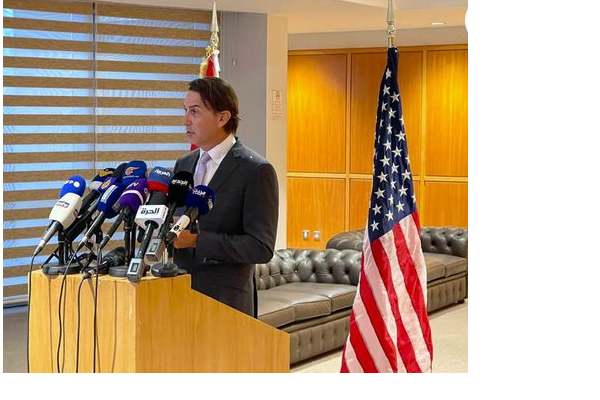The proposal, presented by top US security official Amos Hochstein, outlines an initial 60-day truce followed by a permanent ceasefire.
By Vered Weiss, World Israel News
An initial draft of a US ceasefire proposal calls for Hezbollah to comply with a previous agreement to retreat from Lebanon’s border with Israel and for the IDF to withdraw from Lebanon within a week, as reported by Kan news.
The proposal, presented by top US security official Amos Hochstein, outlines an initial 60-day truce followed by a permanent ceasefire.
One requirement is the enforcement of UN Resolution 1701, adopted at the end of the Second Lebanon War in 2006, that called for “the establishment between the Blue Line and the Litani river of an area free of any armed personnel, assets, and weapons other than those of the Government of Lebanon.”
The enforcement of Resolution 1701 would create a buffer zone free from Hezbollah and would potentially allow the safe return to their homes of over 40,000 displaced Israelis.
The current ceasefire proposal stipulates that only the Lebanese army, besides UNIFIL, would be the only armed group in Southern Lebanon.
For its part, Israel would retreat from Lebanon and refrain from carrying out any operations against military targets.
The Lebanese government would supervise sales and production of weapons.
After the retreat of Hezbollah, 5,000 to 10,000 Lebanese army troops would be deployed at the border with Israel, and UNIFIL forces would be increased, perhaps with the addition of soldiers from France, Germany, and the UK.
Following this phase, an international body will observe activity on the Lebanese-Israel border and ensure compliance.
According to US officials, the US has agreed that if UNIFIL and the Lebanese army refuse to deal with violations by Hezbollah, the IDF would be allowed to take action against the terror group.
The third phase involves permanent efforts to prevent Iran from rearming and blocking means to transfer weapons to the terror group by air, land, or sea.
Western officials said that Iran may allow or even encourage Hezbollah to agree to a ceasefire even though the war in Gaza continues.





